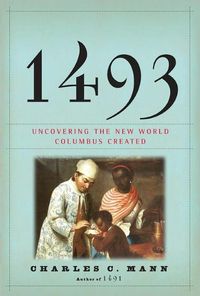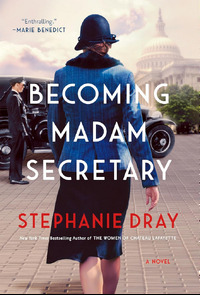

Purchase
1493, August 2011
Hardcover
1491, October 2006
Trade Size
Uncovering the New World Columbus Created
Knopf
August 2011
On Sale: August 9, 2011
560 pages
ISBN: 0307265722
EAN: 9780307265722
Hardcover
Add to Wish List
Non-Fiction
From the author of 1491—the best-selling study of the
pre-Columbian Americas—a deeply engaging new history of the
most momentous biological event since the death of the
dinosaurs. More than 200 million years ago, geological forces split
apart the continents. Isolated from each other, the two
halves of the world developed radically different suites of
plants and animals. When Christopher Columbus set foot in
the Americas, he ended that separation at a stroke. Driven
by the economic goal of establishing trade with China, he
accidentally set off an ecological convulsion as European
vessels carried thousands of species to new homes across the
oceans. The Columbian Exchange, as researchers call it, is the
reason there are tomatoes in Italy, oranges in Florida,
chocolates in Switzerland, and chili peppers in Thailand.
More important, creatures the colonists knew nothing about
hitched along for the ride. Earthworms, mosquitoes, and
cockroaches; honeybees, dandelions, and African grasses;
bacteria, fungi, and viruses; rats of every description—all
of them rushed like eager tourists into lands that had never
seen their like before, changing lives and landscapes across
the planet. Eight decades after Columbus, a Spaniard named Legazpi
succeeded where Columbus had failed. He sailed west to
establish continual trade with China, then the richest, most
powerful country in the world. In Manila, a city Legazpi
founded, silver from the Americas, mined by African and
Indian slaves, was sold to Asians in return for silk for
Europeans. It was the first time that goods and people from
every corner of the globe were connected in a single
worldwide exchange. Much as Columbus created a new world
biologically, Legazpi and the Spanish empire he served
created a new world economically. As Charles C. Mann shows, the Columbian Exchange underlies
much of subsequent human history. Presenting the latest
research by ecologists, anthropologists, archaeologists, and
historians, Mann shows how the creation of this worldwide
network of ecological and economic exchange fostered the
rise of Europe, devastated imperial China, convulsed Africa,
and for two centuries made Mexico City—where Asia, Europe,
and the new frontier of the Americas dynamically
interacted—the center of the world. In such encounters, he
uncovers the germ of today’s fiercest political disputes,
from immigration to trade policy to culture wars. In 1493, Charles Mann gives us an eye-opening scientific
interpretation of our past, unequaled in its authority and
fascination.
Comments
No comments posted.
Registered users may leave comments.
Log in or register now!
| 


 © 2003-2025 off-the-edge.net
all rights reserved Privacy Policy
© 2003-2025 off-the-edge.net
all rights reserved Privacy Policy